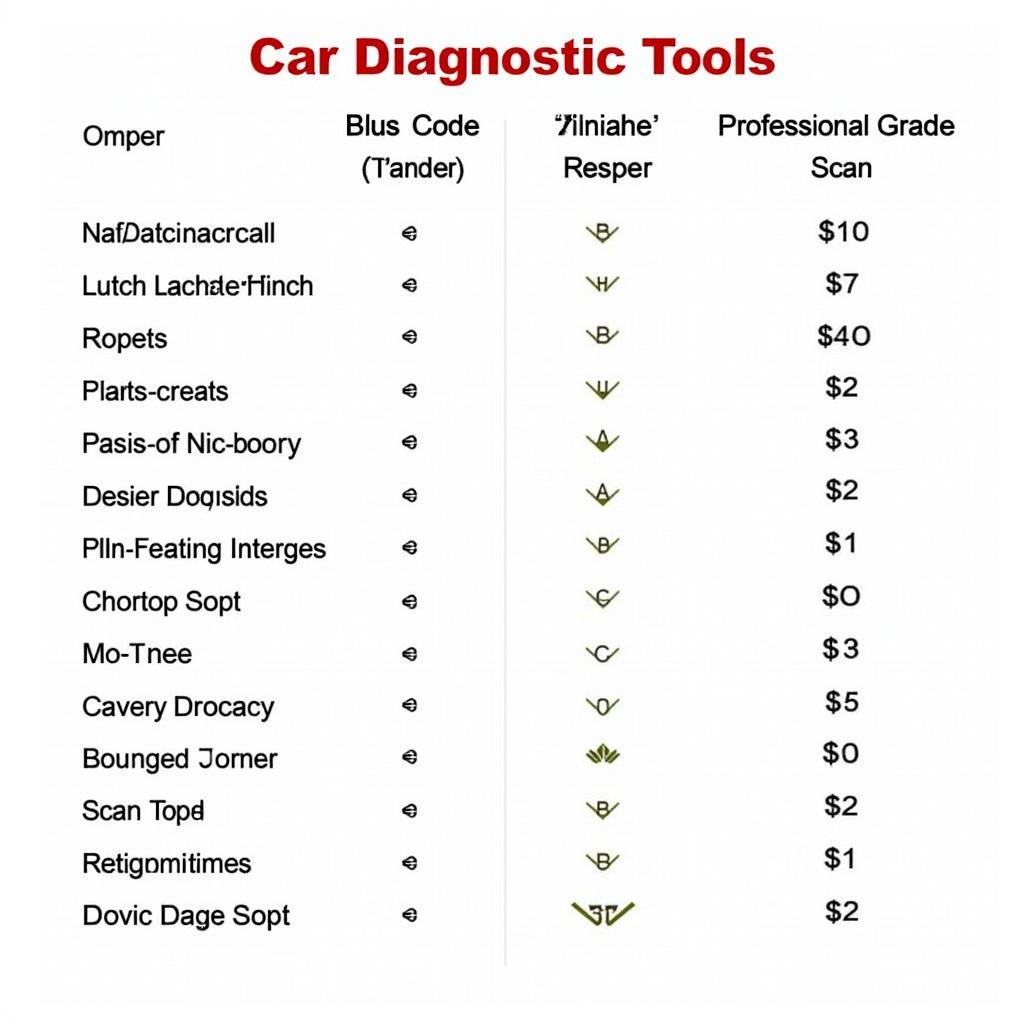A Car Diagnostic Tool is no longer a luxury reserved for mechanics in high-tech garages. In today’s world of increasingly complex vehicles, owning a car diagnostic tool is becoming essential for both car enthusiasts and everyday drivers. Whether you’re dealing with a stubborn check engine light or want to delve deeper into your car’s performance, a car diagnostic tool can be your trusted sidekick.
Why Do I Need a Car Diagnostic Tool?
Imagine this: your car starts acting up, the engine sputters, and that dreaded check engine light throws a yellow glow across your dashboard. Traditionally, this meant a trip to the mechanic, a hefty bill, and perhaps a lecture about your car’s questionable life choices.
A car diagnostic tool empowers you to take control. By plugging into your car’s onboard computer (OBD-II port), these tools unlock a treasure trove of information about your vehicle’s health.
Here’s how a car diagnostic tool can become your new best friend:
- Decode the Check Engine Light: That cryptic warning light? A diagnostic tool translates it into plain English, telling you exactly what’s wrong.
- Diagnose Issues Early: Catching problems early can save you from expensive repairs down the road. A diagnostic tool acts like a stethoscope for your car.
- Save Money on Repairs: Armed with knowledge, you can negotiate better with mechanics or even tackle some repairs yourself.
- Enhance Your Car’s Performance: Monitor vital signs, analyze fuel efficiency, and optimize your car’s performance.
- Peace of Mind: Knowing you can troubleshoot issues yourself provides invaluable peace of mind, especially on long journeys.
Choosing the Right Car Diagnostic Tool: Not All Tools are Created Equal
Just like cars, car diagnostic tools come in all shapes and sizes, from basic code readers to professional-grade scanners.
- Code Readers: These entry-level tools read and clear basic diagnostic trouble codes (DTCs), giving you a general idea of the issue.
- OBD-II Scanners: A step up from code readers, scanners provide more in-depth data, including live sensor readings and the ability to view multiple parameters simultaneously.
- Professional-Grade Scan Tools: These tools are the mechanic’s best friend, offering advanced features like bi-directional control (the ability to command certain systems) and access to manufacturer-specific codes.
 Different Types of Car Diagnostic Tools
Different Types of Car Diagnostic Tools
Expert Insight: “When choosing a car diagnostic tool, consider your budget and technical expertise,” says Emily Carter, Senior Automotive Technician at Carter Automotive. “A simple code reader might suffice for basic troubleshooting, while a professional mechanic needs a more advanced scanner.”
Navigating the World of Car Diagnostic Tools: Tips for Beginners
- Start Simple: If you’re new to car diagnostics, a basic code reader or OBD-II scanner is a great starting point.
- Research Your Car: Ensure the tool you choose is compatible with your car’s make, model, and year.
- Read Reviews: User reviews can provide valuable insights into the tool’s ease of use, accuracy, and features.
- Look for User-Friendly Features: Choose a tool with a clear display, intuitive menus, and helpful software.
- Don’t Be Afraid to Ask for Help: There are countless online resources, forums, and communities dedicated to car diagnostics.
Conclusion: Empower Yourself with Knowledge
A car diagnostic tool is no longer a luxury – it’s a smart investment in your car’s health and your peace of mind. By understanding your car’s language, you can diagnose problems early, save money on repairs, and drive with confidence.

Leave a Reply